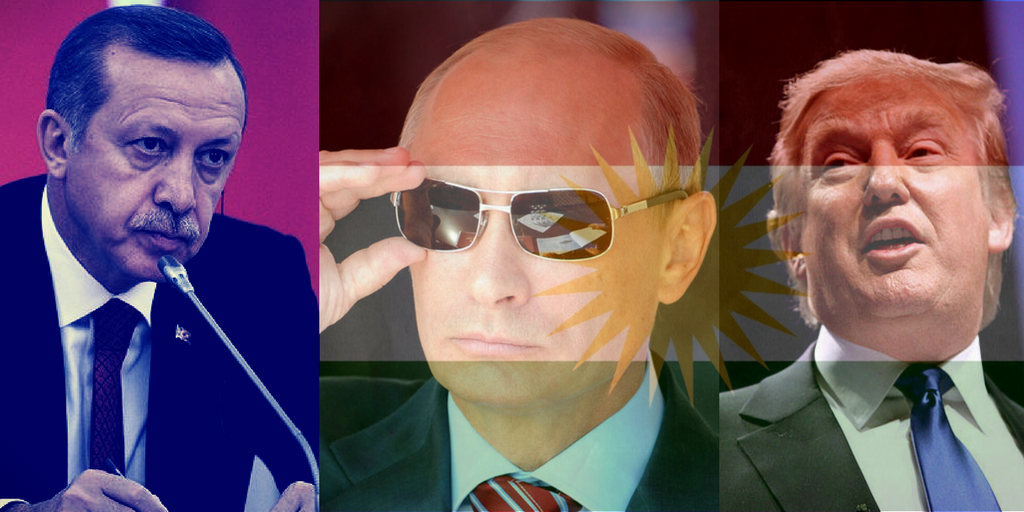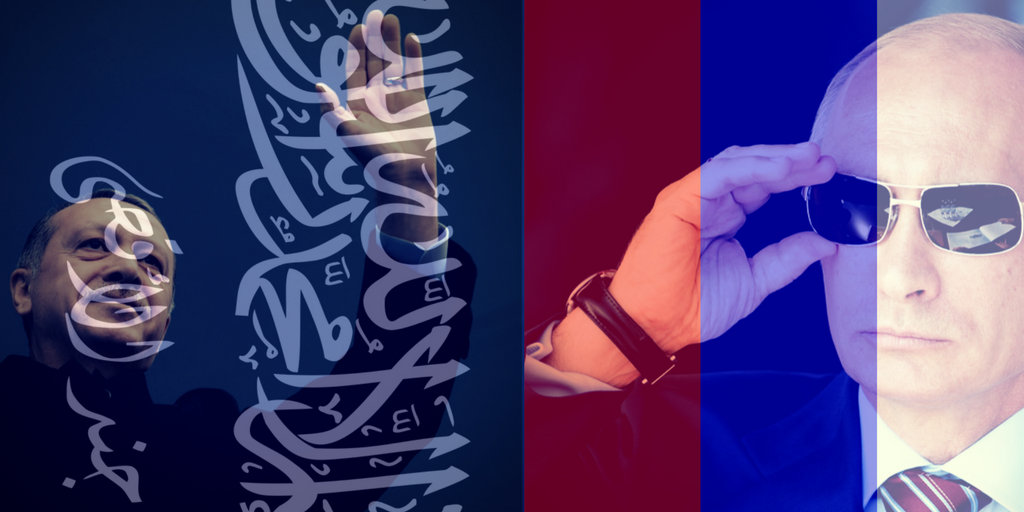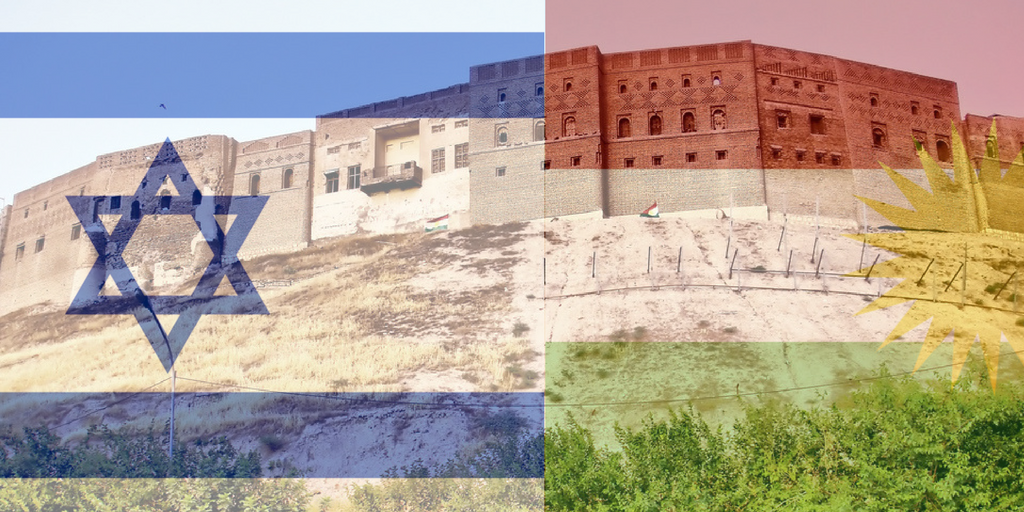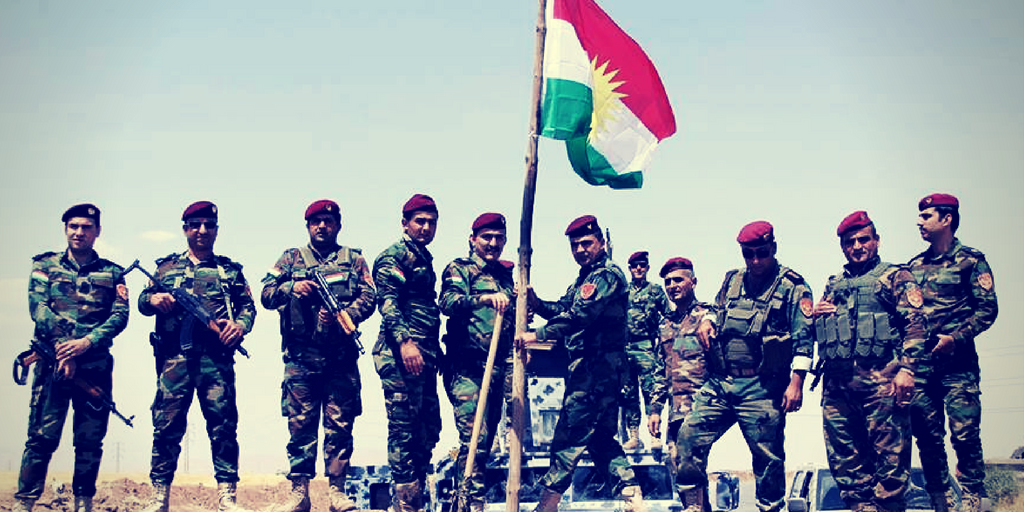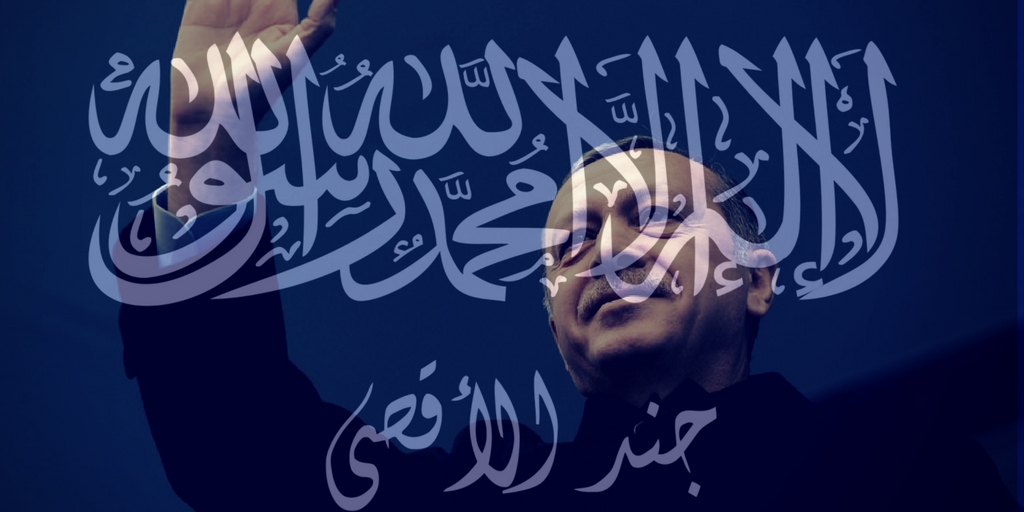Of all the spinoff conflicts connected to the Syrian Civil War and the fight to destory ISIS, the Turkish offensive to wipe out the growing strength of the Kurdish militia in Northern Syria is the most important.
Despite claims to the contrary, Erdogan helped fund ISIS in its early days in order to create enough chaos to further his interests in spreading Turkish power into Northern Iraq and Syria. He both allowed ISIS fighters to travel from Turkey into Syria and provided the same fighters medical attention when necessary.
When stories of Turkish aid convoys reached the news, Erdogan pivoted and joined the fight to “destroy the group.” Turkey then used their offensives into Syria to achieve three objectives: show the world it is not in collusion with ISIS, stand up to Russia, and most importantly destroy the nascent Kurdistan.
Kurdistan factors heavily into Trump and Putin’s post ISIS Syria and Iraq. The Kurdish Peshmerga has been the only force that has showed the ability to defeat ISIS. As long as Turkey stayed out of Syria, the Kurdish YPG could continue gaining ground.
The Battle of Manbij Will Prove Pivotal
Manbij is a Kurdish controlled town just 40km from the Turkish border and this week it has provided the setting for what will no doubt prove to be the beginning of an independent Kurdistan. With Turkey deciding to push out the Kurds who have controlled the town, the Trump administration took the opportunity to team up with Russia in order to thwart Erdogan’s plans.
Bloomberg reports:
A U.S. deployment and a Russian-brokered deal with Syrian forces created buffer zones that headed off any Turkish campaign against the Kurdish forces who hold the town — seen by Washington as key allies against Islamic State and by Turkey as terrorists.
Once again Erdogan’s plans of dominating the Kurds have faltered. With Russia and the US working together Turkey is forced to deal with the reality that the Kurds are here to stay.
Is Kurdistan Next?
Although rumors of an independent Kurdistan have risen higher in the years since ISIS came to power, the reality of the rumors have never been more actual than now. Kurdistan offers the ability to right an historic injustice by creating a state for the Kurds who have been stateless for centuries. In fact, it is the Kurds who are indigenous to the area, going as far back as the ancient Medes. An independent Kurdistan would create stability in the Middle East and act as a buffer to the madness of the Arab tribes to the South and Turkish regional aspirations from the North.
Furthermore an independent Kurdistan would quickly become an ally of Israel in its fight against radical Islam.
Will Trump and Putin make it happen? So far their cooperation in relation to Manbij makes the prospect likely.

